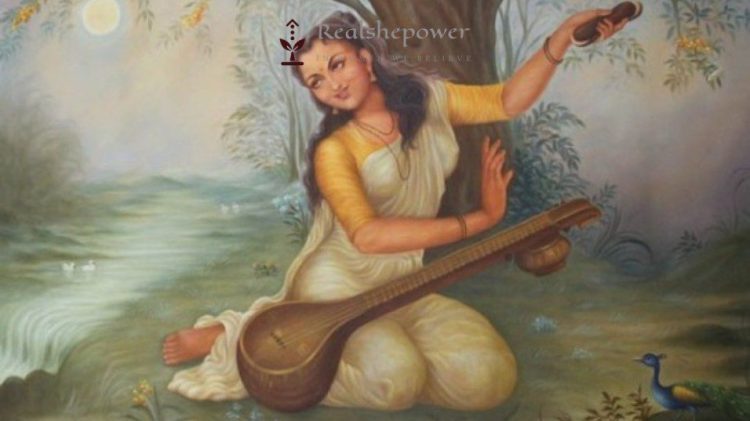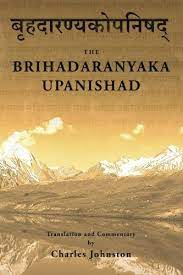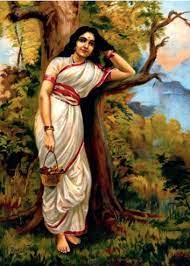Meet Maitreyi An Indian Sage and Philosopher Who Knew Metaphysics


Maitreyi An Indian Sage and Philosopher
In Vedic society, women enjoyed a position of parity and reverence with the male members of the society. Several Rishis of the Vedic period were also females (Rishikas). The Rig Veda identifies the role of female Rishis and asserts that “the entire world of noble people bows to the glory of the glorious woman so that she enlightens us with knowledge and foresight.” Moreover, the Brihadaranyaka Upanishad highlights that female seers such as Gargi and Maitreyi were great dialecticians, philosophers and visionaries.
Yajnavalkya was an ancient sage who was celebrated for his distinguished and uncontested wisdom. He holds the authorship of sacred texts like the Yogayajnavalkya Samhita and Yajnavalkya Smriti. Moreover, the seminal, Brihadaranyaka Upanishad has two chapters devoted to his philosophical doctrine. He had concretely established the proposition of Non-Duality/ Advaita. Yajnavalkya had two wives, namely, Maitreyi and Katyayani and it is believed that both of them differed with regards to symbolism. Maitreyi is the symbol of a learner/ scholar and Katyayani is the symbol of being a homemaker; being grounded in mundane reality.

Maitreyi, the seeker and speaker of the knowledge of Brahman (Brahma Vidya) and Vedic Truths, was ensuingly stamped as a Brahmavadini. As a female sage, she explored the realms of metaphysics, spirituality, and theology in order to obtain knowledge about the nature of the Atman (individual soul), Brahman (supreme soul), and their unity. To add, 10 out of the thousand hymns of the Rig Veda are ascribed to her. The most salient facet of her intellectual journey revolves around the sense of spiritual companionship between her and her husband, Yajnavalkya. In point of fact, it is supposed that she has copiously contributed to the spiritual and intellectual growth of Yajnavalkya.

Source: DevvratYoga.
There is a glorious dialogue between Maitreyi and Yajnavalkya that concerns the instance when Yajnavalkya decided to surrender his worldly possessions and retire to the forests. Before commencing an ascetic lifestyle, he approached Maitreyi to make a final settlement of all his material belongings. With her philosophical temperament, Maitreyi reacts by asking: “Lord, if all my possessions were to fill the entire earth, would they bring me immortality?”
Yajnavalkya was afflicted with Maitreyi’s esoteric question and replied that immortality cannot be attained through wealth or by dwelling in worldly affairs. He adds to this and tells her that nothing exists separately from the self and only awareness of the Parmatma (Supreme Soul)is cardinal for the realisation of absolute truth. He says: “The Parmatma is in everybody and everybody dwells in the Parmatma. So, if you gain knowledge about Parmatma, then you will gain knowledge about everything.” Thus, Yajnavalkya enlightens Maitreyi with ultimate reality by shrinking everything to one elementary concept, i.e., the Parmatma.
They, then acutely discoursed on the idea of love, the concept of ultimate truth, the status of the soul, infinite knowledge and the path to liberation.
The Brihadaranyaka Upanishad has multiple episodes of this famed dialogue between Maitreyi and Yajnavalkya projecting layers of themes from both stances. It is evident that Maitreyi studied metaphysics along with her husband and was involved in subsequent transcendental discussions. Through the practice of cautious listening, reflecting and speaking, Maitreyi was able to attain the elevations of knowledge. Indeed, profound philosophical interactions with her husband helped her dive deep into the metaphysical and spiritual understanding of reality and reflect on the fruits of the scholarly exchange.
Seemingly, Maitreyi was an epitome of rebellion, affirmation and vigour. She was one of the most cultivated and virtuous women of classical Indian antiquity. Maitreyi is remembered as a philosophical student and is regarded as the best representation of women intellectuals in India; in the past and even today. She is an icon for women in contemporary times due to her contemptible intellect, sharpened psychic expertise and magnificent verbal ability. Recognising the wisdom of Maitreyi certainly inflates our view of Indian Feminism and tenders to inestimable lessons for us, modern revolutionaries.
Sources:
- The Brihadaranyaka Upanishad, translated by Charles Johnston, 2016. https://www.amazon.in/Brihadaranyaka-Upanishad-Charles-Johnston/dp/1537054821
- “Maitreyi”. DevvratYoga. https://www.devvratyoga.com/maitreyi/
- “Maitreyi’s Quest”. The Hindu. https://www.thehindu.com/society/faith/Maitreyi%E2%80%99s-quest/article17069453.ece
About the Authors

Aastha Mishra
Assistant Professor, Philosophy, Mata Sundri College, University of Delhi. New Delhi, India.

Rashi Mittal
1st Year, BA, Philosophy Student, Mata Sundri College, University of Delhi. New Delhi, India.
